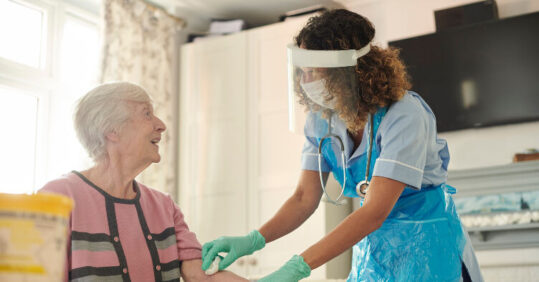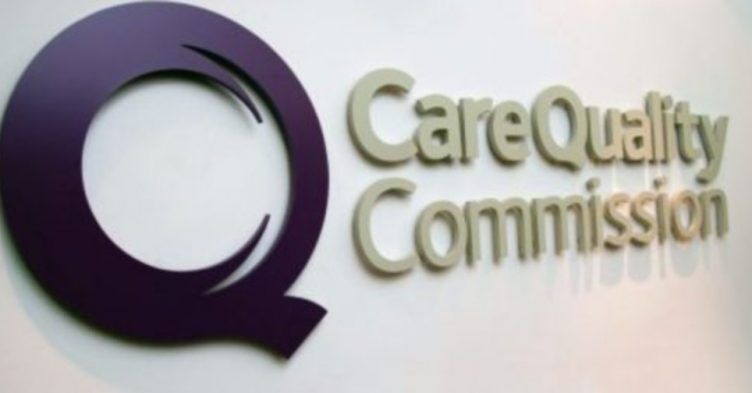A group of nurses and healthcare professionals will contribute to the UK Covid-19 Inquiry and plan to ‘seek justice’ over concerns that staff were issued with inappropriate PPE.
The Covid-19 Airborne Transmission Alliance (CATA), in which the Queen’s Nursing Institute (QNI) plays a central role, says it will use its place in the inquiry to ‘seek justice for healthcare workers’.
Formed as a response to the Covid-19 Inquiry, CATA was set up in response to concerns that a ‘lack of acceptance of airborne Covid-19 transmission by the Government has led to dangerous policies, decisions and practices that deprived healthcare workers of the correct Respiratory Protective Equipment (RPE) and put them and their patients at risk of illness and death.’
Government policy based on the view that Covid is transmitted by larger droplets of fluid emitted from infected people, led to a policy of issuing less protective PPE, the alliance argues. Aerosols are smaller than droplets, and a higher grade of mask is required to reduce the risk of infection, they say.
CATA’s contention is that the Government’s failure to acknowledge aerosols as a medium of infection led to the distribution of PPE not best suited to stopping the spread of Covid-19.
The QNI, as a member of CATA, said that it will represent the views of nurses working in the community who have been ‘directly affected by the lack of regard to their protection by the then UK Government’.
Dr Crystal Oldman, QNI chief executive, said: ‘So often during the pandemic it was community nurses working on the frontline in care homes, GP surgeries, community adult and children’s nursing services who continued to deliver complex nursing care in non-clinical environments 24 hours a day, but who were often overlooked by the UK government at the time.’
CATA’s aim is to ensure that information on the ‘aerosol transmission of Covid-19’ and the experiences of its members are made available to the inquiry. It also aims to address wider concerns about the effective management and impact of respiratory risks in healthcare across acute and community settings through the pandemic, a statement said.
Aerosol transmission can occur when respiratory aerosols containing the virus remain in the air and are inhaled by another person. Healthcare workers may be at particularly high risk when caring for infectious patients or service-users.
Dr Alison Twycross, a registered nurse and long Covid campaigner, told Nursing in Practice that: ‘The refusal by both the Government and IPC policy makers to admit their mistake and acknowledge that Covid is airborne means that health care staff (and many others) are not appropriately protected from covid infections in the workplace.
‘This results in more reinfections and increases the chance of developing long Covid. I am usually the only person wearing an FFP3 mask when I attend hospital appointments – most people aren’t wearing masks at all – those that do are wearing surgical masks which we know are not particularly effective.’






